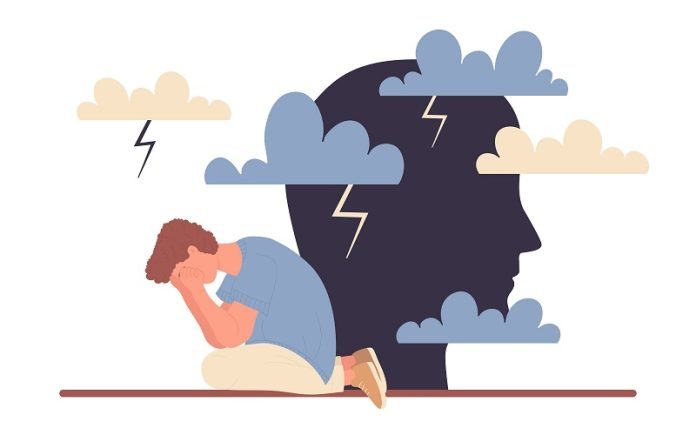
Depression is more than just a bad mood—it’s a serious mental health condition that affects millions of people worldwide.
While it’s normal to feel sad or down occasionally, depression is deeper and longer-lasting, significantly impacting daily life.
This article explores the common causes of depression, backed by research and insights from the medical community, to help demystify this complex condition.
Depression doesn’t have a single cause; it results from a combination of genetic, biological, environmental, and psychological factors.
Each person’s experience with depression can vary widely, but understanding the common triggers and underlying causes can help in managing or preventing the condition.
Genetic Factors
Research shows that depression can run in families, suggesting a genetic link. If you have a first-degree relative (such as a parent or sibling) with depression, you are more likely to develop it yourself.
Various studies, including those looking at twins, estimate that genetics can account for about 40% to 70% of the risk associated with depression.
However, not everyone with a family history of depression will experience it; genetic predisposition interacts with other factors to trigger the disease.
Biological Changes
Depression is associated with changes in how the brain functions. Neurotransmitters, the chemicals in our brain that communicate between nerve cells, play a key role in mood regulation.
Imbalances in neurotransmitters like serotonin, dopamine, and norepinephrine can lead to symptoms of depression. Additionally, structural and functional changes in certain brain areas, such as the frontal lobe or the hippocampus, are often observed in those with depression.
Environmental and Social Factors
Life events and environmental conditions are significant triggers for depression. Stressful life changes such as the death of a loved one, a divorce, or job loss can provoke a depressive episode.
Chronic stress at work or home, including abusive relationships and long-term isolation, can also lead to depression. Social factors, including socioeconomic status, can impact one’s exposure to stressors and resources available to manage them, influencing depression risk.
Psychological and Personality Factors
Certain personality traits, such as low self-esteem and being overly dependent, self-critical or pessimistic, are linked with a higher risk of depression.
Moreover, how a person responds to stress, their coping mechanisms, and resilience level also play a critical role. Individuals who have difficulty managing stress or who have less adaptive coping strategies may be more susceptible to depression.
Physical Health Issues
There is a strong link between physical health and depression. Chronic illnesses, such as cancer, heart disease, diabetes, and Parkinson’s disease, can increase the risk of developing depression, which can, in turn, affect the outcome of these physical health conditions.
Moreover, changes in physical health status, such as hormonal changes or undergoing a major surgery, can also trigger depressive episodes.
Substance Use
Abusing alcohol, drugs, or prescription medication can lead to or result from depression. Substance use can exacerbate or mask depression symptoms, making it more complicated to diagnose and treat effectively.
Coping with Depression
Recognizing the factors that contribute to depression is the first step towards managing it. Treatments can vary and include medications, therapy, lifestyle changes, and support groups, depending on the individual’s specific needs and the root causes of their depression.
In conclusion, depression is a multifactorial disease with various contributing elements. Understanding these can help individuals and healthcare providers develop better strategies for prevention and treatment.
By addressing both the biological and environmental components, it is possible to effectively manage and even prevent depression, leading to improved overall health and well-being.
If you care about depression, please read studies about how dairy foods may influence depression risk, and B vitamins could help prevent depression and anxiety.
For more information about mental health, please see recent studies that ultra-processed foods may make you feel depressed, and extra-virgin olive oil could reduce depression symptoms.
Copyright © 2024 Knowridge Science Report. All rights reserved.



